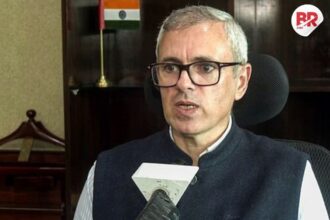
India Suspends Indus Water Treaty After Pahalgam Attack
India has put the Indus Waters Treaty on hold. The decision, taken by the Cabinet Committee on Security on April 23, comes after the brutal killing of Indian tourists in Pahalgam. The message is loud and clear: “Blood and water cannot flow together.”
For most Indians, this isn’t about diplomacy anymore. It’s about dignity. We’ve tolerated cross-border terror for decades while still letting Pakistan drink freely from our rivers. That goodwill has now run dry—both literally and politically.

The Indus Waters Treaty, signed in 1960, was once hailed as a model of water-sharing between neighbors. It gave Pakistan control over three rivers—Indus, Chenab, and Jhelum—while India retained the eastern rivers. India followed the rules, even during wars. Pakistan? Not so much.
This Isn’t Sudden: It’s a Response to Years of Provocation
This latest move isn’t sudden. It’s a response to years of provocation. Terror attacks, infiltration, and now, the murder of tourists enjoying Kashmir’s beauty—what did Pakistan expect? A bouquet of roses?
Pakistan’s Appeal: Too Little, Too Late
India’s letter of silence says more than Pakistan’s latest appeal. Their water secretary Syed Ali Murtaza recently asked India’s Jal Shakti secretary Debashree Mukherjee to reconsider. He called India’s move “illegal” and claimed it was an “attack on Pakistan’s people and economy.”
Terrorism Is the Real Threat—Not the Water Suspension
Let’s pause there. Isn’t harboring terrorists an attack on our people and economy?
Also Read After 3 Weeks in Pakistan Custody, BSF Constable Shaw Has Returned to India
Reservoir Maintenance or Strategy? India Flexes Water Leverage
Since the suspension, India has stopped sharing data and begun maintenance work like desilting and flushing on dams like Baglihar and Salal in Jammu & Kashmir. This has disrupted water flow into Pakistan—right before their sowing season. Suddenly, they remember the treaty.
But here’s the inconvenient truth: the treaty itself allows for changes if the circumstances shift. Climate change is real. So is cross-border terrorism. Both are game changers.
Indian officials argue the original treaty was flawed and too generous. Even then, we stuck to it. Why? Because India believed in peace and cooperation. But peace needs both sides. Pakistan’s silence on terror has now drowned the very spirit the treaty stood for.
Pakistan now finds itself caught in the irony. They want treaty rules to be followed—while flouting every rule of neighborly conduct. You can’t play victim after feeding the fire.
India’s position is strong, and morally justified. We’re not weaponizing water. We’re defending our borders—with pipes and principles.
Also Read Turkey Travel Plea Backfires: Why Indians Are Furious—and Not Forgiving












